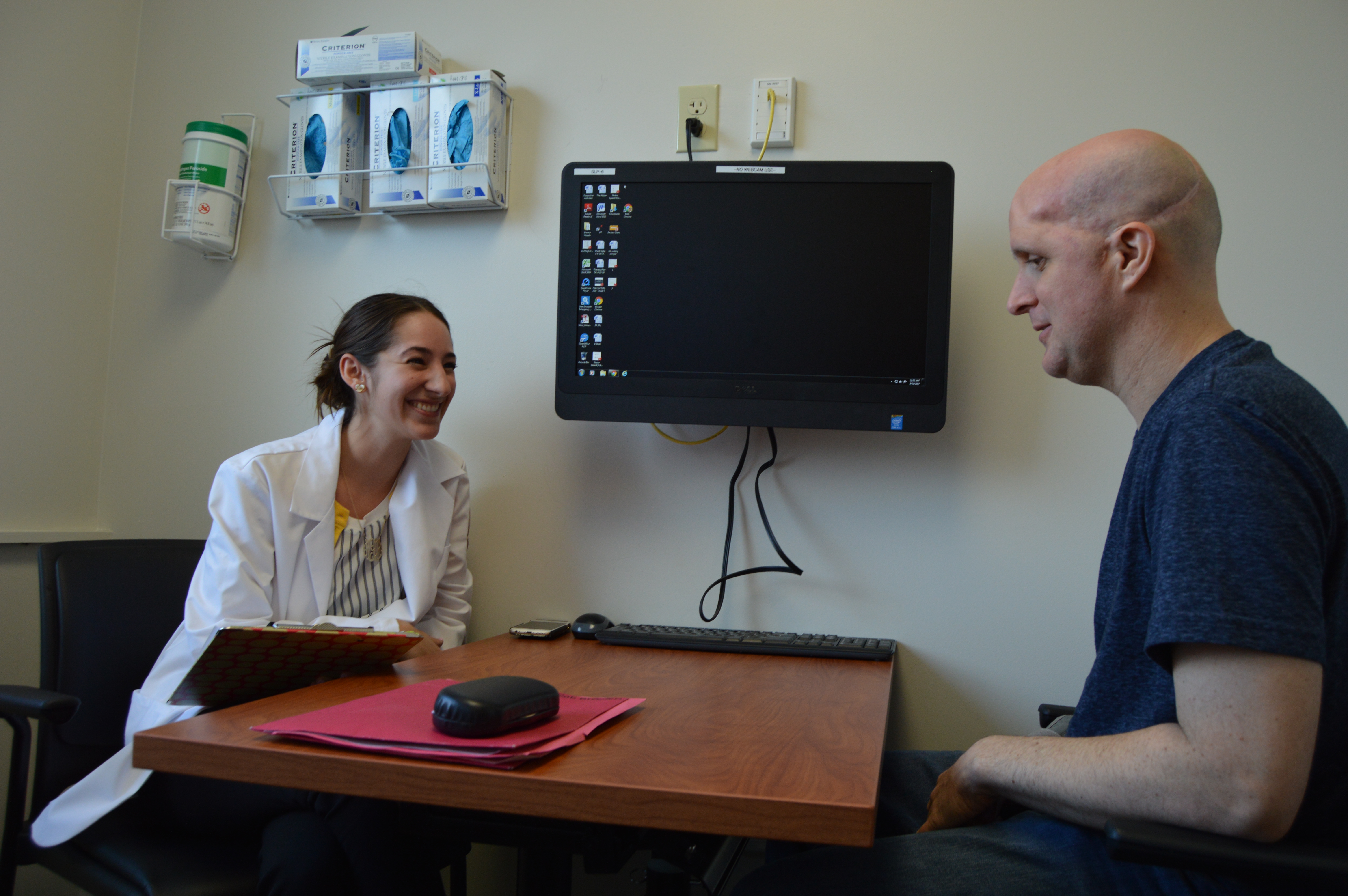Traumatic Brain Injury/Concussion
Traumatic brain injury (TBI) happens when a bump, blow, jolt, or other head injury causes damage to the brain. A traumatic brain injury can happen from a fall, car accident, violence, firearm-related injury, or as a result of shaking a child (as seen in cases of child abuse).
Symptoms of a TBI may not appear until days or weeks following the injury. The most common type of head injury is called a concussion, which is known as a mild traumatic brain injury.
 Signs and symptoms of a concussion can include:
Signs and symptoms of a concussion can include:
- Headache
- Blurry vision
- Nausea
- Feeling tired
- Anxiety
- Sadness
- Difficulty thinking clearly
- Sensitivity to light
- Dizziness, balance issues
- Loss of consciousness
Concussions don’t happen just from sports, or to young adults. Concussions frequently happen to the aging population from falls and are over looked. They are common after car accidents or any other trauma to the skull. It is also important to realize an injury doesn’t necessarily correlate with how hard the blow to the head was and frequently does not result in a loss of consciousness.
In most cases, people will recover from a concussion in a week to ten days, with adults usually recovering faster than children. While many times traumatic brain injuries can’t be prevented because they are due to an accident, there are a few things a person can do to protect themselves.
 Always wear a seatbelt in the car.
Always wear a seatbelt in the car.- Never drive under the influence of alcohol or drugs.
- Wear a helmet in sports and activities such as biking, skating, horseback riding, skiing, and snowboarding.
- Avoid dangerous sports and activities.
- Use child car seats correctly. Always buckle your young child into a car seat before you drive.
- Make living areas safe for children. Install window guards to keep children from falling out of windows. Use safety gates at the top and bottom of stairs.
- Make sure the surface of playgrounds where your children play is made of shock-absorbing material, such as mulch or sand.
- Make living areas safe for seniors. Remove tripping hazards, use nonslip mats in showers and bathtubs, and install handrails and grab bars on stairs or in the bathroom.
- People who are prone to falling should walk with the assistance of a cane, a walker or have someone with them for assistance.
 Studies suggest that once brain cells are destroyed or damaged, for the most part, they do not regenerate. However, recovery after a brain injury can take place as in some cases, other areas of the brain make up for the injured tissue. In other cases, the brain learns to reroute information and function around the damaged areas. Each brain injury and rate of recovery is unique. Recovery from a severe brain injury often involves a prolonged or lifelong process of treatment and rehabilitation.
Studies suggest that once brain cells are destroyed or damaged, for the most part, they do not regenerate. However, recovery after a brain injury can take place as in some cases, other areas of the brain make up for the injured tissue. In other cases, the brain learns to reroute information and function around the damaged areas. Each brain injury and rate of recovery is unique. Recovery from a severe brain injury often involves a prolonged or lifelong process of treatment and rehabilitation.
TBI can cause speech, language, thinking, and swallowing problems. Those with a TBI may have difficulty expressing what they would like to say, organizing their thoughts, speaking fluently and have memory lapses. These problems can affect you in school, at work, and in everyday activities. Speech-language pathologists (SLPs) work to address deficiencies in language, swallowing and speech. After conducting a series of evaluations, a SLP will set goals, create a customized therapy plan, and schedule follow-up appointments for each individual client.
For more information or to make an appointment, please contact the Speech-Language Institute at 215.780.3150.